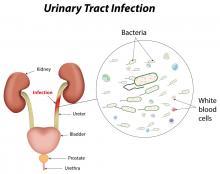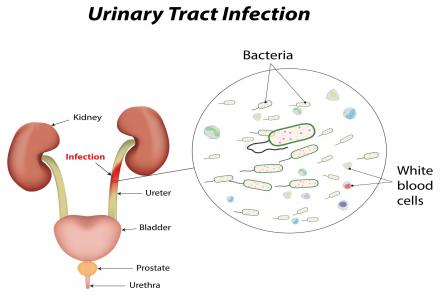
Here are some useful tips on management of Urinary Tract Infection including dietary guidelines, your UTI management team and what to watch out if you have frequent UTI infections
If you are getting frequent infections, try to identify specific triggers as they can be avoided. For women, behavioural modifications such as avoiding use of spermicides, proper perineal care like wiping front to back and postcoital voiding is recommended. In post-menopausal women, vaginal estrogen application is known to be effective.
Dietary Guidelines for UTi Management
- Drink plenty of water and empty the bladder frequently as it helps to flush the bacteria away
- Eat more vegetables, for example, spinach, potatoes, green beans, avocado, onion, broccoli, mustard greens. Most vegetables become alkaline after digestion, which decreases the growth of bacteria.
- Use of probiotics, avoiding artificial sweeteners and urinary alkalization are still under investigation. Some oral and vaginal vaccines are also being researched.
-
Garlic and onions are thought to help fight UTI because of their antimicrobial activity, which means they could help to kill bacteria and other microorganisms and prevent them from growing in the body.
- As antioxidants, vitamin A and vitamin C keep your bladder and urethra healthy and working well. This prevents UTI.
- Cranberries (in the form of juice or tablets) are commonly seen to prevent bacteria from sticking to the urethra. Although it is assumed that this is because they contain proanthocyanidins, it is not proven to prevent UTIs. Make sure you keep the calorie load in mind when consuming cranberry juice and avoid it if you are on warfarin. Besides that, if it seems to help, there is no harm in taking cranberry.Avoid caffeine in particular as it is known to cause bladder irritation and worsen urinary tract symptoms.
- Avoid alcohol as it can irritate the bladder
- Control of blood sugar is essential in the treatment and prevention of UTIs as high sugar levels in the body are known to interfere with the immune system and thus lead to a proliferation of bacteria
When you have UTI symptoms, avoid the following as they worsen symptoms:
- Avoid citrus-flavoured sodas and caffeinated sodas
- Avoid fruits containing a lot of acid, such as apples, peaches, grapes, plums, strawberries
- Avoid spicy foods as they are known to cause bladder irritation
- While these steps are useful, they don’t guarantee that you won’t get a UTI. Contact the medical provider whenever there are any symptoms of UTI. If you have recurrent UTIs and use spermicides or a diaphragm, your doctor may recommend alternative birth control.
Your support team: Who can help
- Physician
- Gynaecologist
- Urologist
- Pathologist
- Health nurse practitioners and lab technicians
- Other specialities as required
References:
Abou Heidar, N. F., Degheili, J. A., Yacoubian, A. A., & Khauli, R. B. (2019). Management of urinary tract infection in women: A practical approach for everyday practice. Urology annals, 11(4), 339–346. https://doi.org/10.4103/UA.UA_104_19










